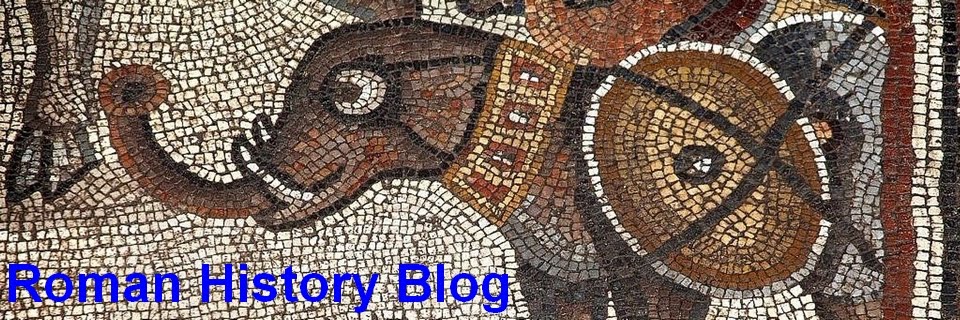The Roman
Poet 'Virgil'
Publius
Vergilius Maro
better known to us as Virgil was born on the 15th
of October 70 BC at Andes in Northern Italy. He later died at
Brundisium in Southern Italy on the 21st
of September 19 AD. Virgil was born to a lower class family, raised
on a farm and was educated at Cremona (Milan) and then finished at
Rome. He learnt the art of rhetoric and studied philosophy. His
education included Greek and Roman authors, especially the poets.
Siro
the Epicurean philosopher also taught Virgil at his school in Naples.
Virgil mentions Siro in the poem “Appendix Vergiliana” Virgil
never married and lived almost like a recluse concentrating on his
poems.
Mosaic of
Virgil
Image wikipedia.org
This Mosaic
of Virgil can be found on the site of the ancient Hadrumetum and
currently preserved in Bardo National Museum in Tunis, where it
constitutes one of its key pieces. It is currently the oldest
portrait of the Latin poet Virgil
Virgil
witnessed the end of the Roman Republic, lived through the civil wars
of Marius and Sulla, Pompey and Julius Caesar, When Virgil was at the
age of 20, Caesar crossed the River Rubicon and initiated several
civil wars. Caesar was assassinated on the Ides of March 44BC (15th
of March) and his nephew Octavian (later Augustus) ended these civil
wars at the battle of Actium in 31BC.
Virgil
is perhaps known as the greatest Roman poet famed for his work “The
Aeneid” an epic poem in 12 books. This was styled on Homer's Iliad
and Odyssey. It follows the Trojan refugee Aeneas as he struggles to
fulfill his destiny and reach Italy, where his descendants Romulus
and Remus were to found the city of Rome. It also includes the civil
wars and the reign of Augustus including the tragedy of Dido, the
queen of Carthage who killed herself by her affection for Aeneas, It
is the story of the earliest days of Rome, a national epic honoring
Rome and prophesying the rise of the Roman Empire.
The Aeneid
Get this
book at https://amzn.to/2Gdx8TK
Get the
Kindle Edition at https://amzn.to/2G9bkZE
After a
century of civil strife in Rome and Italy, Virgil wrote the Aeneid
to honour the emperor Augustus by praising his legendary ancestor
Aeneas. As a patriotic epic imitating Homer, the Aeneid
also set out to provide Rome with a literature equal to that of
Greece. It tells of Aeneas, survivor of the sack of Troy, and of his
seven-year journey: to Carthage, where he falls tragically in love
with Queen Dido; then to the underworld,; and finally to Italy, where
he founds Rome. It is a story of defeat and exile, of love and war,
hailed by Tennyson as 'the stateliest measure ever moulded by the
lips of man'
Ovid,
another Roman poet knew Virgil and Ovid would of been influenced by
Virgil's work. Ovid would of been much younger then Virgil and
eventually Ovid's writing would get him banished from Rome by Emperor
Augustus!
Virgil died of fever
in 19BC and on his deathbed asked that the 'Aeneid' be burnt as he
had not finished the final edits but Emperor Augustus requested that
it be published. Virgil will always be best known for three major
works of Latin literature, the Eclogues (or Bucolics), the Georgics,
and the epic Aeneid.
The
Eclogues and Georgics
Get this
book at https://amzn.to/32aUFgr
The
Eclogues, ten short
pastoral poems, were composed between approximately 42 and 39 BC,
during the time of the 'Second' Triumvirate of Lepidus, Anthony, and
Octavian. In them Virgil subtly blended an idealized Arcadia with
contemporary history. To his Greek model - the Idylls
of Theocritus - he added a strong element of Italian realism: places
and people, real or disguised, and contemporary events are
introduced. The Eclogues
display all Virgil's art and charm and are among his most delightful
achievements.
Between
approximately 39 and 29 BC, years of civil strife between Antony, and
Octavian, Virgil was engaged upon the Georgics.
Part agricultural manual, full of observations of animals and nature,
they deal with the farmer's life and give it powerful allegorical
meaning. These four books contain some of Virgil's finest descriptive
writing and are generally held to be his greatest and most
entertaining work, and C. Day Lewis's lyrical translations are
classics in their own right.
Links
Roman
History on Twitter https://twitter.com/romanhistory1
Roman
History Website http://romanancienthistory.blogspot.com/
Copyright
© 2020 David Lee















